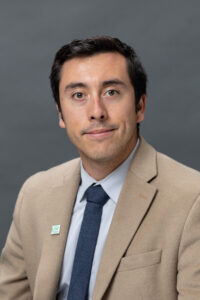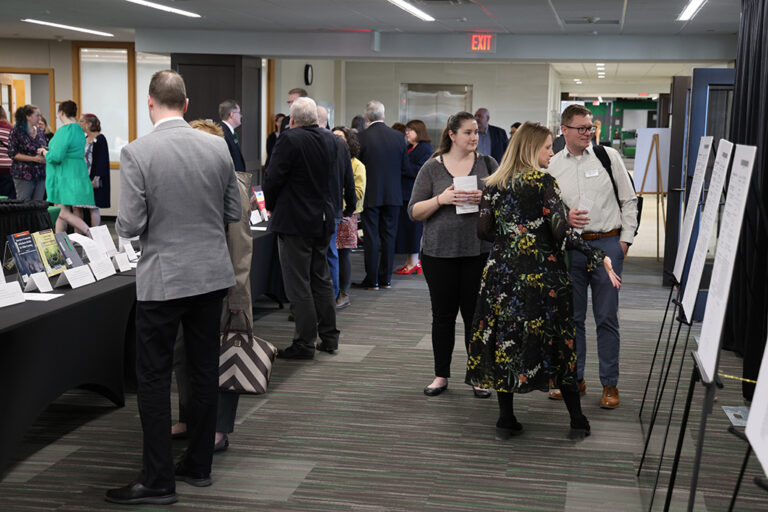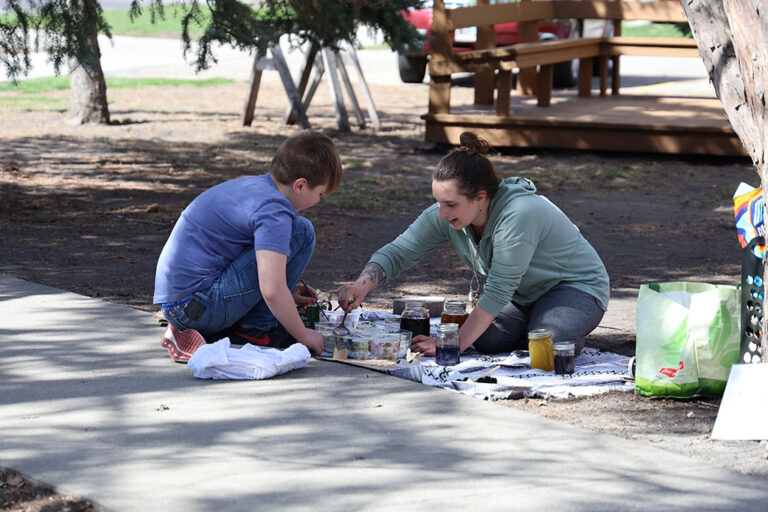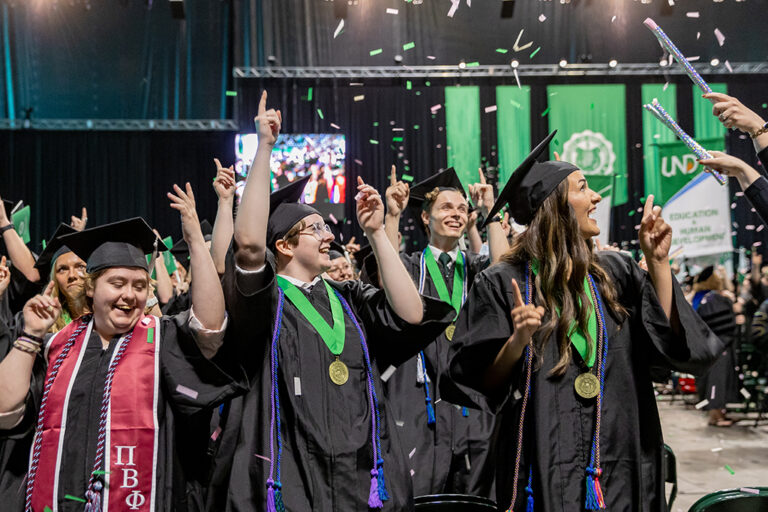A Q&A with Scott Snyder, UND’s new VP for Research & Economic Development
Across more than two decades of higher education experience, Snyder has collaborated with NASA, DoD and other federal agencies

How have your first few months on the job been? What are your impressions of the campus community?
I’ve been really impressed by the energy on campus. That energy is not just surrounding research, creative activities and our overall discovery effort. There’s a lot of energy surrounding UND as a whole. It’s clear that people like working here, studying here – they’re very passionate about this university. That has made for an energizing and welcoming place to work.
How did you discover the position, and what led you to apply?
I was contacted by the firm that was running the search process, and I thought “hey, that’s pretty interesting.” I had a good sense of the University of North Dakota, especially that it was an up-and-coming research university. I chatted with the firm at length, and they spoke very highly of university leadership with President Armacost and the team that he has assembled around him. They really gave the impression that this is a progressive, forward-thinking institution that has a lot of additional potential for growth and making a difference in society.
You have extensive experience working with federal agencies such as the National Science Foundation to create research opportunities for students and faculty. How has that experience helped you transition into your current role, and what further opportunities would you like to develop here at UND?
I served as a program officer at the NSF for a little over two years, and in that position, I worked with folks from the National Institutes of Health, NASA and the National Institute of Science and Technology. That role gave me a broad overview of federal funding and how it works.
Being able to bring those observations and deeper knowledge of the federal funding landscape is helpful in my current role.
When I was in Omaha, I worked very closely with the U.S. Strategic Command, which is a Department of Defense entity that basically oversees command and control of the nation’s nuclear arsenal. When I discovered that among many other strengths, one of the grand challenge areas at UND is national security, that was very attractive to me because I’ve worked in that environment.
There are great opportunities to grow everywhere. For example, I think we have great opportunities in the biomedical realm. That very tightly involves the School of Medicine & Health Sciences, the School of Nursing & Professional Disciplines, the College of Arts & Sciences and the College of Engineering & Mines. I think we can grow through those collaborative efforts.
UND is also one of the world’s leaders in autonomous systems. It’s well known through the Research Institute for Autonomous Systems, the Northern Plains UAS Test Site and Grand Sky that there’s a great ecosystem surrounding autonomy here in Grand Forks and at UND that we can use and move forward to an even bigger phase.
As renowned as UND is in STEM-focused fields, you have expressed a desire to help boost research in the arts, humanities and social sciences. How do you plan to help scholars at UND in that regard?
It’s a critical part of our Discovery portfolio. One of the things that I’m really pleased about is our behavioral health initiative. That is a combination of multiple colleges working together to solve societal issues surrounding behavioral health, and how to mitigate risks in behavioral health.
We also have a strong culture of creative activity, the arts and humanities. One of the things that I need to untangle a bit as I move forward in this position, is what mechanisms are already in place to support those disciplines, and what mechanisms can we implement to help scholars in those disciplines move forward in their fields.
UND at its core is a liberal arts university. Our dedication is to broadly train our students, so they can become very active and productive members of society. In many cases, this means inviting students to work in discovery with our faculty and researchers, which gives them a leg up as they head into their careers.
Many legislators and business leaders have cited workforce as one of the most pressing issues facing North Dakota. How do you think UND is preparing students to enter the workforce?
From a workforce development perspective, I can take information that I gather in my discussions with business leaders in the region and around the country, and government entities that need well-trained employees in a variety of disciplines. I work with the deans and other members of the colleges to think about how we can best implement those needs, through curricular experiences in the classroom, or through research and discovery activities with faculty mentors.
One of the things I’ve found in my first two months here is that the colleges are very nimble and very willing to develop programs that are responsive to industry needs. The new aerospace engineering program, for example, will be helpful in developing workforce.
One of the things that a university can do to spur economic development is not just provide workforce to existing companies, but also attract new companies and let startups grow. The way that we do that is by providing them with well-educated students who are critical thinkers and can come to work and make those companies successful in multiple facets.
It’s not just aerospace engineering in this case. Employers need people from every one of our colleges, and that’s what makes a place like Grand Forks attractive for employers.
How would you define the responsibilities of your position?
I don’t hire researchers in the colleges, but I work very closely with the deans to make certain that we’re all on the same page with where we want the university to grow.
Although my job is not based directly in the curriculum or student success, the things that we do in this office help students succeed through experiential learning and faculty mentored research opportunities.
My responsibilities are to move the entire discovery enterprise forward at UND. That means every discipline on campus. I have a large responsibility for making certain that we are investing in the right disciplines that can attract the support of funding agencies, publishers or art galleries – whatever it may be. I spend a lot of time talking to industry and government partners to find out how we can work with them to bring resources to the university to support our faculty and students as they conduct their research.
One of the other things I’m responsible for is the economic development aspect. How do we as a state-funded institution live up to our potential to help drive the economy of North Dakota forward? That’s a responsibility that I take very seriously.
What are some of your favorite things that you’ve experienced in Grand Forks so far, and what are you looking forward to exploring in the future?
First and foremost, my favorite thing has been UND hockey. I’ve absolutely had a ball going to the games since we got here in January. I’ve also enjoyed getting to know the campus – the people, the leadership, staff, students and faculty – all the great folks contributing to everything we do. I’ve been very warmly welcomed. I’m looking forward to when it gets green and warm, and I can start to explore this state, get out and meet people more broadly.



